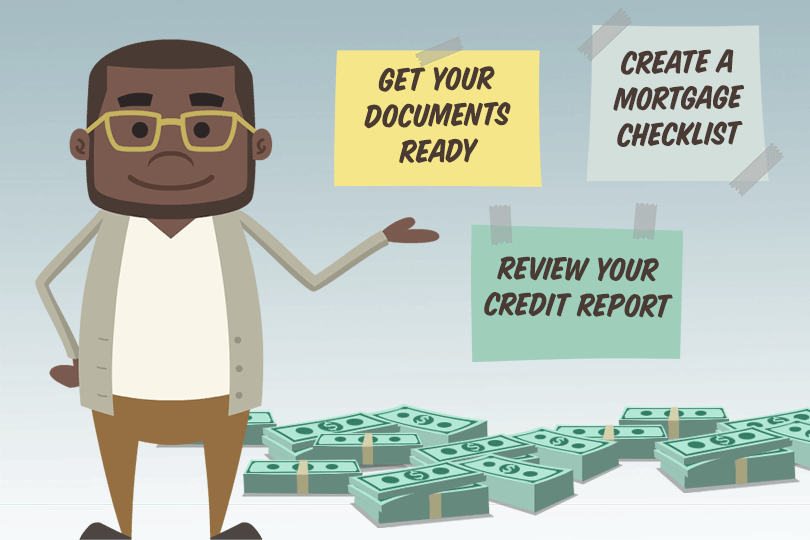Planning and Saving for a New Home
February 7, 2023
This large, upfront cost of buying a house is what keeps many potential homebuyers in a renter’s trap, that is when they don’t can’t put away money for a down payment because most of their income is going towards paying rent.
While it can seem overwhelming, there are ways to start saving and getting out your apartment.
Figure Out How Much to Save
The best way to get anything done is having a measurable goal to work toward. So, your first step needs to be determining how much money you’re going to put down on a home. This starts with setting a budget on the purchase price, and then deciding on a percentage for the down payment.
For example, say you have capped your budget at $200,000 for a new house. Now determine how much of that price can you pay down. To avoid paying the private mortgage insurance on a conventional loan, you’ll need to pay at least 20% of that price up front, which in this case would be $40,000. You can also look at more affordable options, like FHA home loans, that allow borrowers to pay 3.5% of as down payment. Just keep in mind that you will have to pay a mortgage insurance premium with that as well.
Once you have a number in mind, calculate how long it will take you to save up. Attempt to save the goal amount within 24 months, so you can start saving for other expenses as well. Set up a separate savings account, and start putting money away.
Cut Down on Expenses
This may sound impossible at first, but it is completely within your ability to get rid of certain spending habits. If you take the time to look at your monthly expenses, you’ll see so many places where you can cut back and save. Here are just a few examples:
- Instead of splurging on new clothing every month, buy one new item every 3 months.
- Only buy generic store brands for groceries.
- Don’t eat out, unless it’s a special occasion.
- Cancel your gym membership and do home workouts.
- Buy coffee in bulk and make it at home.
Many people choose to be responsible and start saving for retirement early in their careers. While this is a great way to lessen stress in the future, it might help to press pause while you are saving for a down payment. Instead, take whatever percentage you save for retirement every month and start placing it in a separate account for the down payment. This is only temporary, and shouldn’t last more than two years. Once you’ve met your down payment goal, you can go back to adding to your retirement account.
Think of Additional Income Sources
The truth is that saving for a down payment takes work and dedication, which means that in addition to cutting back on expenses, you may need to look at cutting back on free time and leisure as well. Think about skipping your annual summer vacation for one year and putting the money into your savings account. You can also utilize your free time to picking up a second job.
There are a number of ways you can earn a little extra cash by doing simple things in your wheelhouse. Look into part-time jobs, such as tutoring or babysitting. If you’re good at making something, look into selling it online! There are a bunch of ways you can bring in some more money every month if you put in the time.
------------------------------
RELATED VIDEOS:
There's a Difference Between APR and Interest Rates
Choose Your Mortgage Lender Carefully
Getting Started With Your FHA Loan Application

FHA Loan Articles
April 1, 2023FHA loan rules for single family purchase loans include guidelines for the lender to use if the applicant has rental income. Some want to know whether it is possible to qualify for an FHA mortgage using rental income. The real issue is whether the rental income meets FHA loan rules.
March 16, 2023Planning your FHA loan means asking some important questions early in the process. The most obvious question is associated with the type of home you want. How large a house do you need? FHA mortgages allow the purchase of homes with between one and four living units.
February 7, 2023There are tons of reasons why people decide that they’re done with renting and start looking into buying a home. Whatever your reason, deciding to buy a home is a big step, and one of the most daunting aspects is saving up enough money for the down payment.
January 27, 2023Before you get ready to commit to a home loan application, it’s good to review your circumstances and ask a few basic questions about your loan, your plans, and the home itself. Believe it or not, knowing what type of home loan you need is an important step.
January 10, 2023When getting ready to shop for a home loan, it's worth taking a look at your credit report. Your credit score is a big factor when lenders take a look at your loan application, and it plays a huge role in the interest rate you get.







